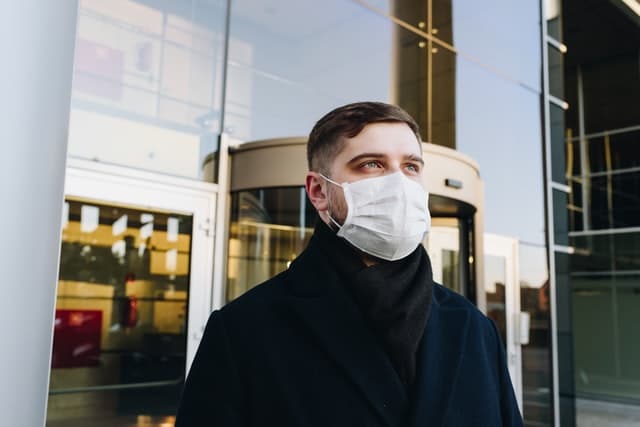Right now, thinking of sustainability isn’t the first thing that springs to mind when we’re pondering the effects of COVID-19. But while we struggle with continuous lockdown restrictions, a brutal fall on our economy and immense strain on the healthcare system, the environment is also in the firing line. Hailed as the ‘new plastic bottle’, disposable face masks pose a threat to ecosystems, landfill and nature itself. As face coverings are mandatory in several areas across the globe – like Victoria, for example – accessing these masks is a high priority. Still, we’re often not thinking about what kind to opt for.
Across the globe, more than 129 billion face masks are in use – give or take. Add that to the 65 billion plastic gloves used every month, and there’s a lot of waste going straight into the landfill (and more importantly, into our waterways, oceans and surrounding reserves). Unfortunately, they’re still necessary, but there are ways you can lessen your contribution to the turnover of masks in general. Read on to find out more.

Photo by Anastasiia Chepinska on Unsplash
How to dispose of a face mask properly?
Once COVID-19 is all said and done, it’s expected that PPE waste will be a significant issue world over. To do your part in disposing of face masks in an environmentally friendly manner, follow these tips.
- Single-use masks should go in the bin but cut the ear straps on either side first. This lessens the likelihood of animals and creatures getting caught in the loops and suffering. Never dump your mask anywhere but where it should be – in the rubbish bin.
- Often, masks still make their way out of bins and into parts of the world like rivers and oceans. The best way to avoid this is by not using single-use masks at all unless you’re required to do so.
- Some organisations, such as Less Plastic, state that there actually is no way to safely discard of single-use masks. The only way to avoid risk on the environment is by using reusable options that require less turnover.
- If you’re using a reusable option, make sure you wash yours daily and swap filters out accordingly. When discarding a filter, double-check they’re in the bin and not dropped somewhere else.
What if face masks are a new way of life from now on?
We need to think about our mindset when it comes to using PPE like this. Even though facial coverings may now be an inevitable part of our future, there are appropriate ways we can counteract the adverse effects they’re having on the environment.
For example, using a reusable mask that allows you to swap over filters and wash them daily, are far more ideal than single-use alternatives. Additionally, approaches like sourcing materials locally, rather than importing PPE from other areas, will minimise unnecessary waste. Where possible, we need to start considering using plastic elements like this in a reusable, recyclable manner – the more friendly we can make it to the world around us, the better.
Remember that COVID-19 is influencing a lot of the ways we are used to living. From rising household expenses to social distancing and the new working from home normal – we need to adapt appropriately and productively. So what are you doing for Mother Nature?
Now could be the best time to take advantage of lower electricity prices. Find out why in this article from our team.











































